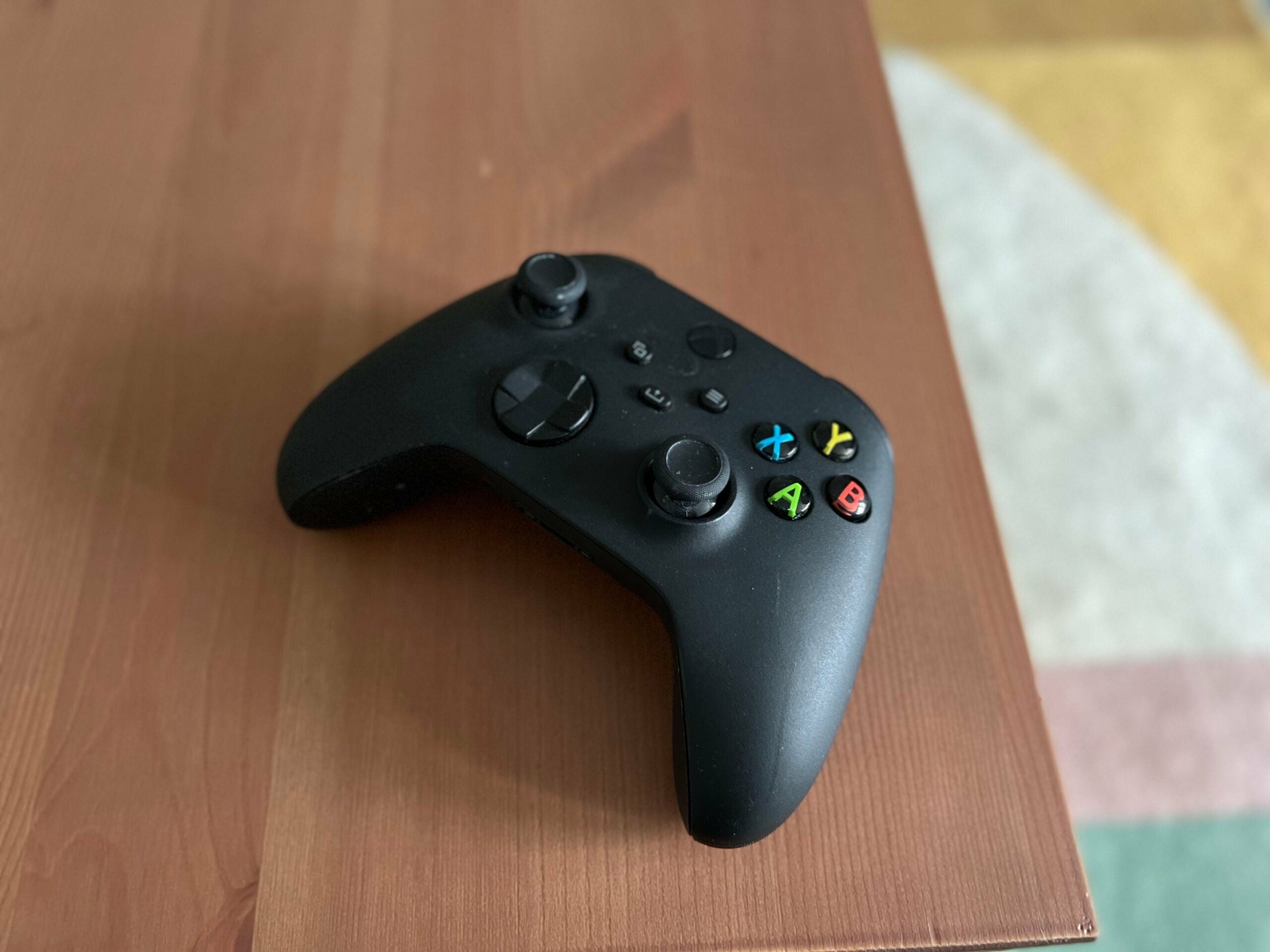For decades, lawmakers, researchers, journalists and parents have worried that video games are bad for us: that they encourage violent behavior or harm mental health. These fears have spilled over into political decisions affecting millions of people. The World Health Organization added “gaming disorder” to its International Classification of Diseases (ICD) in 2019, while China restricts people under 18 from playing games for more than three hours a week to prevent minors from becoming addicted.
However, in recent years a growing body of research has argued that video games are actually good for us, improving cognition, relieving stress and enhancing communication skills.
The reality, a new study suggests, is that we simply don’t have a good grasp of how games affect our well-being, if at all.
The research, described in the journal Royal Society Open Science last month, found little or no evidence of a causal link between gaming and well-being, meaning that time spent playing video games had neither a negative nor a positive effect on players’ emotional health. .
Researchers from the University of Oxford’s Oxford Internet Institute (OII) analyzed how much time 38,935 gamers spent playing seven different games: Animal Crossing: New Horizons, Apex Legends, Eve Online, Forza Horizon 4, Gran Turismo Sport, Outriders and The Crew. 2. This data was provided directly by the game’s publishers—a rarity, as the vast majority of studies on video games rely on players’ self-reports of how long they spend playing. The Oxford team says such data is biased and rarely accurate.
The players’ well-being was assessed with three surveys conducted every two weeks over a six-week period. People ranked how often they experienced feelings including “pleasant” and “unpleasant”, and measured their overall life satisfaction using the Cantril self-anchoring scale, visualizing an imaginary ladder with the top rung representing their best possible life.
Additionally, they answered questions about their experiences and motivations. The researchers say that examining the emotional well-being of players through their moods and emotional experiences is a stepping stone to assessing mental health.
Although the amount of time the participants spent gaming showed limited if any effect on their well-being, and the way they felt did not affect how long they spent gaming, their motivations did have an impact on their emotional state. Participants who played because they wanted to, rather than feeling compelled to play to beat a high score, for example, reported higher levels of well-being, although the relationship was small. Players would need to clock an additional 10 hours per day on top of their average game play for any noticeable effect to be observed.
The research builds on the findings of a smaller study that the same team published in 2020, which found a small positive relationship between gaming and well-being. This new study is the largest of its kind based on actual player behavior collected from real games, which its authors say is a first step toward explicitly determining the real-world causal effects of playing video games on well-being over time.
The findings demonstrate the complexity of making definitive conclusions about how and why playing video games affects us. The science of game research is relatively new, and studying them is difficult because of how diverse they are: a simple puzzle app on a smartphone is very different from a sprawling massively multiplayer online game, and modern games contain vast amounts of data. Another factor is that the industry’s technology is evolving faster than researchers can conduct studies, meaning that their methodologies for studying effects on mental health or aggression can be contentious.
The evidence base from which the WHO and Chinese authorities draw is “garbage” and seriously out of step with the scale of the decisions based on it, says Andrew Przybylski, a senior researcher at the Oxford Internet Institute and co-author of the report. “That’s not to say that countries, parents and regulators don’t have a very serious role to play in ensuring that games are a safe and rewarding part of people’s lives,” he says. “It just means that if we’re going to regulate them and give advice to parents, it has to be clearly proven.”
The moral panic surrounding video games remained in a way that previous entertainment panics such as those surrounding rock music and television did not. But the evidence is not there.
Media reports that the perpetrators of mass shootings from the mid-1990s onward were avid gamers, coupled with a flurry of studies beginning in the early 2000s, fueled concerns that violent games made people more aggressive. These reports found that participants “punished” opponents for longer, gave tasters larger doses of hot sauce, and were more likely to guess aggressive words such as “explode” in a word completion task after playing violent games. But other researchers have since questioned how effective these studies really were in measuring violent behavior.
A 2020 meta-analysis in Royal Society Open Science, which re-examined 28 studies from previous years, found no evidence of a long-term link between aggressive video games and youth aggression. Low-quality studies that did not use standardized or well-validated measures, it found, were more likely to exaggerate the effects of games on player aggression, while higher-quality studies tended to find negligible effects.
The same pattern has been repeated with respect to studies linking video games to poor mental health, which tend to report smaller effects after they use objective data on game duration (as the OII study did) rather than relying on subjective self-reporting by participants, they say. Peter Etchells, professor of psychology and science communication at Bath Spa University, who believes that the past 20 to 30 years of video game studies have not had a consistent handle on what they were trying to measure or how to do it.
“New studies like this can help draw a line under this whole ‘Are video games good or bad for us?’ line, because it is and always has been the wrong question to ask,” he says. “It’s like asking ‘Is food bad for our waistline?’ It’s a stupid question.”
“My hope is that we can get better by not thinking about it in terms of ‘Are video games, are video games bad?’ but thinking about that gray area in between,” he adds. “Because that’s where all the interesting stuff is.”
Przybylski was among a group of academics who wrote to the WHO in 2016 arguing against the “premature” inclusion of gaming disorder in its ICD guidelines, citing the low quality of the research base and the fact that academics have not reached a consensus. . Six years on, not much has changed, and researchers are still divided on the extent to which being addicted to games might differ from addiction to substances or gambling, for example.
An interesting next step would be to focus on any participants demonstrating problematic behaviors in the OII study to see how they can be trained or supported, says Tony van Rooij, a senior researcher at the Trimbos Institute in the Netherlands, which focuses on gaming, gambling, and digital balance Another area worth studying, he says, is the predatory business models that game makers use to put pressure on players’ behavior, including encouraging them to make microtransactions to skip frustrating levels, play at fixed times, or log in every day to avoid missing out. about something
“In our research and experience, we tend to find that there is a large group of ‘healthy’ gamers who benefit from their gaming,” he says. “But there is also a minority of gamers with unhealthy gaming habits – often accompanied by various other problems in life. Gaming is not necessarily the cause of these problems, but obviously extreme participation in gaming must be considered to restore balance. The study is very rigorous and well done, but I hope it will be a starting point, not an end goal.”
Przybylski hopes that game companies will make it easier for players to share data from their gameplay with independent researchers, although he admits that the industry has no financial incentive to hand over that data and risks that the studies will return undesirable results. “I think it’s completely crazy that people who are already signing their genetic and health information for a study can’t come in, open their eyes and donate their game data,” he says. “It is theirs by law. It’s about providing the tools for something more creative than selling ads or figuring out new ways to monetize players.”
Ultimately, despite the best efforts of researchers, academics studying games are unlikely to reach a solid conclusion about how they affect us, says Yemaya Halbrook, a psychology researcher for the Lero Esport Science Research Lab at the University of Limerick in Ireland.
“While we’ve slowly moved away from that over the last decade or so, I don’t think there will ever be a general consensus that video games have no positive or negative effect, or only a positive effect. There will always be those people who say video games are bad for you, and cites biased research,” she says. “We might be able to move them in a direction that says games aren’t all bad, but I don’t think we’ll ever get everyone to agree on a single point, even if it’s a complete, total fact. People aren’t like that.”
Definition and diagnosis. In its report, the Council on Science and Public Health to the American Medical Association (AMA) used this two-hour a day limit to define “game overuse”, citing the guideline of the American Academy of Pediatrics of no more than one to. two hours a day of "screen time".
Do Videogames Make U dumber?

Further analysis revealed that time spent playing video games may link the relationship between owning a video game system and reading and writing sheet music. These findings suggest that video games may take away from after-school academic activities and may interfere with reading and writing in young boys.
Do video games destroy the brain? “As long as games are part of a balanced lifestyle, there is no evidence that they cause harmful brain changes. See the article : News Release – Miguel Herran and Susana Abaitua will Star in the Prime Video of the Original Spanish Series “Los Farad” | TheFutonCritic.com.”
Do video games boost IQ?
Basically, kids who played more video games improved their intelligence and IQ scores. Interestingly, watching videos and engaging with social media did not have any positive effect on intelligence in this study. The study basically stated that video games can make you smarter.
Does gaming lower your IQ?
The results showed that those who played more games than the average increased their intelligence between the two measurements by about 2.5 IQ points more than the average. See the article : ‘Perfect storm’ in real estate market leading to shortage of solicitors, appraisers. No significant effect was observed, positive or negative, of television viewing or social media.
Can playing video games make you dumb?
How many hours of video games is healthy for adults?

Study finds four hours of video games a day is good for your mental health. On the same subject : Absolutely the worst ways to die in video games.
How many hours do adults play video games? According to this recent data, three quarters of adults aged 44-64 played video games for about 16 hours a week this year. This is a dramatic increase from the 69% who played about 12 hours a week in 2020 and the 65% who played about 9 hours a week in 2019.
How many hours of gaming is unhealthy?
The bottom line: “One to nine hours a week appears to be safe, but playing more than nine hours — one hour on weekdays and two hours on weekends — may not be recommended for children ages 7 to 11.” said study author Dr. Jesus Pujol.
Is 3 hours of gaming too much?
Although there is no consensus on how many hours of video games (and overall screen time) is too much, Twenge and her colleagues’ finding that more than five hours a day is excessive seems reasonable.
How long is a healthy time to play video games?
The American Academy of Pediatrics suggests that the time allotted be less than 30 to 60 minutes per day on school days and 2 hours or less on non-school days.
Are gamers more depressed?

found no association between the development of depression and exposure to video games. Only one study examined the association between video gaming and mental health status among preadolescent youth.
Does online gaming cause depression? People cope with their emotional distress by playing online games, but the excessive use of online games for a long time can separate individuals from real relationships, thus causing more severe mental problems, such as depression (15).
What percent of gamers are depressed?
Video games and depression co-occur in more than a quarter of all people with gaming disorder. One group of study participants were addicted to video games, while the people in the control group were not hooked on video gaming. Just over 26 percent of the video gamers had depression.
Are gamers more likely to be depressed?
Adult gamers report more “bad mental health days”, were more sedentary and less outgoing. Men were more likely than women to be gamers. Gamers reported more depression than people who did not play computer games. Gamers reported that they spent more time on the Internet than non-gamers.
Can excessive gaming cause anxiety?

Gaming anxiety affects people everywhere and can show up as symptoms like headaches, palpitations, abdominal pain and paresthesia — that tingling sensation — as well as feelings of hopelessness and low self-esteem, says Leela R. Magavi, a psychiatrist. and regional medical director of Community Psychiatry.
Does gaming affect your mental health? One of the biggest negative effects of video games can lead you to struggle to regulate your emotions properly. Studies show that people diagnosed with Internet gaming disorder are more likely to be aggressive, depressed and anxious.
Can playing video games make anxiety worse?
Although there is no scientific evidence showing that video games cause anxiety directly, the two are most definitely correlated. This means that video games may not cause anxiety directly. However, many people turn to video games as a refuge from their stress and anxiety, which can make their anxiety worse.
Can gaming too much cause anxiety?
One study showed that people with Internet gaming disorder (IGD) showed abnormal emotion regulation, expressed as anxiety and other psychological symptoms. Some studies have detected an association between anxiety and internet gaming and IGD.
What are the side effects of excessive gaming?
Game addiction
- gaming concern.
- withdrawal
- tolerance
- loss of interest in other activities.
- downplaying use.
- loss of relationship, educational or career opportunities.
- gaming to escape or relieve anxiety, guilt, or other negative mood states.
- failure to control



